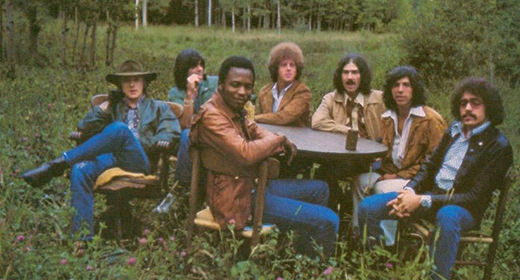by Jonathan Robinson: If your life is anything like mine, several times a week you receive what appears to be “bad news.” It need not be anything big.

Perhaps you realize that your car needs a new muffler, or your back begins to ache again. Since things often don’t go the way we want, it’s important to learn to handle life’s little upsets without losing one’s equanimity. How can that be done? One approach is to try to look on the bright side of whatever happens in your life. That sounds good in theory, but it can be difficult to do in the real world of constant activity and stress. What’s needed is a simple technique that can quickly change our thinking–even though we feel upset. That’s no small task. Luckily, there’s a method that is so simple and effective that it has even worked for a lazy person like myself. I call it Asking About the Good.
A few years back, I was giving a lecture on how good things can come from seemingly disturbing problems. During the break, a student approached me and said he had something for me in his car. As he took his time rummaging through his car, I got increasingly annoyed because I was taking too much time away from class. Every time I was about to head back to class, he’d say, “Wait! I think I found it.” It was not to be. Finally, I insisted I must get back to class. As I entered the class, about 100 people yelled, “Surprise!” It was the day after my birthday, and most of my friends had come to throw me a party.
What was humbling about this experience was the fact that I had just been talking about seeing the positive in adversity, but had totally missed the opportunity when it happened. I realized that in order to feel peace during difficult times, a very simple and precise technique was needed. The idea alone is not enough to help when the crap is hitting the fan. Therefore, I tried various methods that I thought would help. Most failed miserably, but one technique has withstood the test of time and challenge. Whenever a problem arises, I simply ask myself, “What could potentially be good about this?” Then, even if I don’t believe it, I come up with at least two things that could potentially be valuable about the problem I’m facing. If nothing else, when difficulties arise in my life, they can always help me learn important inner traits such as compassion, patience, humility, and faith.
The question, “What could potentially be good about this?” is a great aid to gaining equanimity in life. Besides the fact that it takes your mind off the negative aspects of the situation at hand, it can help you see the possible opportunities that were invisible to you before. Most growth, whether it be personal or professional development, comes from facing challenges and turning them into opportunities. If you can sincerely ask yourself the above question when you’re upset or stressed, you can quickly find your way back to a feeling of peace.
When asking yourself “What could potentially be good about this?” you need not come up with answers that you truly believe. Just the simple act of inventing a couple of possibilities will help you to feel better. Normally, when something happens that we don’t like, we don’t see anything except what made us upset. We lose all perspective.
Imagine you have a black dot the size of a nickel on the page in front of you. If your eyeball were right on top of that black dot, all you would see is black. A person in such a position would rightfully state, “I see nothing but a big black void, devoid of any color. That’s all there is out here—total darkness.” When you ask about the potential good of any situation, it helps you to gain perspective once again. It points your mind away from the black dot, and towards the bigger page of your life. Even if you aren’t convinced that anything good could come from the problem at hand, at least you’re no longer glued to the black dot. The experience of inner peace results from the ability to see that any “black dot” is only a small part of the picture of life. From a yard away, a nickel-sized dot is no big deal; from across the room, it’s hardly noticeable.
The best way to see how well this method works is to try it out. Fortunately, life will give you many opportunities! Let’s say that you come home one day and find that your neighbors have a new dog—one that has a predilection for barking for no apparent reason. After hearing the dog bark for two hours straight, you feel like hurting someone. Instead, you ask, “What could potentially be good about this?” At first you exclaim, “Nothing!” Yet, you know that such thinking won’t do you any good, so you strain to come up with two possibilities. First, you think, “Well, I’ll have to talk with my neighbors about this, and potentially we could become closer as we work out the problem.” You’re halfway there. Finally, you begrudgingly think, “I guess this is motivating me to communicate my needs, and better stand up for myself—which I often find hard to do.” Now that your thinking is not stuck on the black dot, you can see how this situation can be used for your growth. Congratulations. Besides turning this situation into a growth opportunity by asking a simple question, you will most likely also feel a bit better.
It can be hard to remember to ask about the good when you’re upset. In addition, even when you remember to ask, it might be hard to come up with two answers. You’ll probably notice that there’s a part of you that actually resists looking on the positive side. Yet, there’s no joy or energy in the experience of feeling “woe is me.” By asking about the potential good, you’ll soon feel better and be better at solving life’s little upsets. As you learn to use this method as a habitual response to problems, you’ll develop confidence that any situation can be turned into an opportunity for your growth. When you can consistently see the “silver lining” in the upsets of life, you’ll be well on your way to creating lifelong happiness.
 Jonathan Robison has written several bestseller books including, “The Complete Idiot’s Guide to Awakening Your Spirituality;” “The Experience of God,” “The Little Book of Big Questions;” and “Communication Miracles for Couples.” His latest book is called, “More Love, Less Conflict.” Jonathan also co-hosts the podcast “Awareness Explorers” with author Brian Tom O’Connor. This podcast focuses on revealing the easiest and most powerful practices for directly awakening to one’s true nature.
Jonathan Robison has written several bestseller books including, “The Complete Idiot’s Guide to Awakening Your Spirituality;” “The Experience of God,” “The Little Book of Big Questions;” and “Communication Miracles for Couples.” His latest book is called, “More Love, Less Conflict.” Jonathan also co-hosts the podcast “Awareness Explorers” with author Brian Tom O’Connor. This podcast focuses on revealing the easiest and most powerful practices for directly awakening to one’s true nature.
Through TV, live lectures and radio, Mr. Robinson has reached over 100 million people around the world. He is known for providing his audiences with immediately useful information presented in a fun and entertaining manner.









































